 To start with some good news, indications are that the twelve year decline in manufactured housing production and sales may be leveling-off and, hopefully, coming to a halt. Just as importantly, an MHARR analysis, including input from manufacturers and retailers, shows that as the first signs of a possible recovery begin to appear, positive indicators are strongest at the most affordable end of the price spectrum. Thus, confronted with unprecedented difficulty in obtaining and/or qualifying for purchase money financing, Americans are increasingly turning to the industry’s most affordable homes in order to meet their housing needs — providing just the latest vindication of MHARR’s founding vision and ongoing mission of maintaining the delicate balance between affordability and the proper protection of manufactured housing residents.
To start with some good news, indications are that the twelve year decline in manufactured housing production and sales may be leveling-off and, hopefully, coming to a halt. Just as importantly, an MHARR analysis, including input from manufacturers and retailers, shows that as the first signs of a possible recovery begin to appear, positive indicators are strongest at the most affordable end of the price spectrum. Thus, confronted with unprecedented difficulty in obtaining and/or qualifying for purchase money financing, Americans are increasingly turning to the industry’s most affordable homes in order to meet their housing needs — providing just the latest vindication of MHARR’s founding vision and ongoing mission of maintaining the delicate balance between affordability and the proper protection of manufactured housing residents.
The basic underpinning of this philosophy and mission, is that of all segments of the housing industry, only manufactured housing has been recognized by Congress as providing inherently affordable home-ownership for all Americans, without the need for government subsidies. As the original manufactured housing bill was debated in Congress in 1974, a key sponsor warned against regulation that prices consumers out of the manufactured housing market by needlessly raising the purchase price of the home — “if these provisions become law, Congress will have the obligation to evaluate frequently their cost effect on mobile homes. If the cost effect is too great, it could price low income consumers out of the market….” This concern for purchase affordability was later written into law by the Manufactured Housing Improvement Act of 2000, which specifically requires HUD and the Manufactured Housing Consensus Committee (MHCC) to consider the cost impact of both new and revised standards and regulations on the cost of manufactured housing to consumers.
The latest trend toward affordability shown by MHARR’s analysis, thus underscores the importance of keeping the purchase price of HUD Code manufactured homes as stable as possible and ensuring that prices are not driven up by needless or unnecessarily costly standards and/or regulations. For the industry and consumers, this means insisting that proposed changes to existing standards and/or regulations include sufficient cost and justification information to properly and accurately evaluate purchase price impact. It also means rejecting guesswork and wishful thinking, and insisting that purchase price impact be fully considered by the MHCC, by HUD and by any other government agency considering action that could impact manufactured housing. Only by observing these guideposts can manufactured housing remain both safe & affordable for all Americans and continue to provide maximum freedom of choice for consumers to select the amenities they want, consistent with their means and ability to pay for a home. Indeed, with legislation pending in Congress (i.e., the “Restoring American Financial Stability Act of 2010”) that would require homebuyers to prove their ability to pay for a home, this will be more important than ever.
Unfortunately, despite the disproportionately negative impact of purchase price increases on lower-income consumers, there is constant pressure from regulators and others to impose new and more costly standards and regulations on HUD Code manufactured homes. Much of this has been — and is being — advanced by circumventing the major reforms of the 2000 law, and most particularly, as shown at the April 2010 meeting of the MHCC in Tulsa, Oklahoma, by downgrading the role, authority, functionality and independence of the MHCC, which was created by Congress with the specific mission of acting as a check and balance on the power of program regulators and not just as a run-of-the-mill “advisory committee.”
For those who missed the Tulsa MHCC meeting, or did not have an opportunity to review MHARR’s comprehensive meeting report, below are just a few examples of actions taken or advanced (albeit, like the meeting itself, based on decisions made by the prior HUD program management) without a legitimate basis or necessary cost and justification information:
- Under a February 2010 “Interpretive Rule,” HUD has placed off-limits from MHCC review and comment, a myriad of agency interpretations and decisions affecting the standards and their enforcement. By reading “catchall” section 604(b)(6) out of the 2000 reform law, a provision designed by Congress to ensure that HUD would bring most standards and regulatory matters to the MHCC, the stage is now set for HUD to bypass the MHCC on major issues.
- HUD has indicated that changes in reference codes that would relax or lower existing HUD standards will be ignored, leaving only upward revisions of reference standards to be considered. This one-direction-only policy for escalating the HUD standards surfaced during a recent MHCC task force debate regarding updated wind standards.
- Sprinklers mandates. Existing federal standards already provide for the fire safety should be applied by HUD to preempt state or local sprinkler mandates. Instead, HUD is advancing a federal sprinkler standard under the guise that it is either “voluntary,” or triggered only “as needed” by a state or local sprinkler mandate. Experience shows, however, that there is no such thing as a “voluntary” standard and that this will end up as mandatory for all manufactured homes, unnecessarily raising the purchase price of those homes.
- Proposed regulations to revamp the enforcement system, which failed to gain the consensus support of the MHCC because they were not supported with justification or cost-efficiency data are, apparently, still being pursued by HUD.
- Ground anchor testing. HUD’s recent re-write of the anchor testing protocol developed by the MHCC is yet another example of wishful “life-cycle” thinking masquerading as cost analysis. The proposal, generated by a HUD contractor, states:… an accurate assessment of total costs cannot be determined at this time… However, the anticipated increase in cost is considered to be justified by the overall benefits achieved…” If total benefits cannot be determined, however, the relationship of benefits to costs cannot be determined.
- Energy standards are being developed by the Department of Energy (DOE) and other energy mandates are being advanced simultaneously by special interests before the MHCC. The typical claim for energy proposals, without any actual cost data having been shown thus far, is that heightened standards will produce long term savings for consumers. To a consumer who cannot qualify to buy a home because of a higher purchase price, however, “life-cycle” savings mean absolutely nothing.
These proposals and actions represent just the tip of the iceberg that could undermine the affordability of manufactured housing without any corresponding benefit to consumers, and bring an abrupt halt to what appears to be a fragile recovery being led by the industry’s most affordable homes. More than ever, therefore, it is essential that the purchase affordability of manufactured housing be protected and defended by fully implementing all reform aspects of the 2000 law. With a new program leadership now in place at HUD, MHARR will work with the Department to focus on the importance of balancing purchase affordability and consumer protection as set out by Congress in the 2000 reform law – as should all program stakeholders, particularly the rest of the industry and consumers.
In MHARR’s view, manufactured housing is – and must remain – affordable housing for all Americans.
MHARR is a Washington D.C.-based national trade association representing the views and interests ofproducers of federally-regulated manufactured housing.




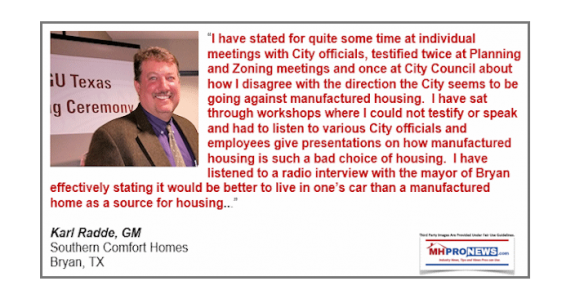
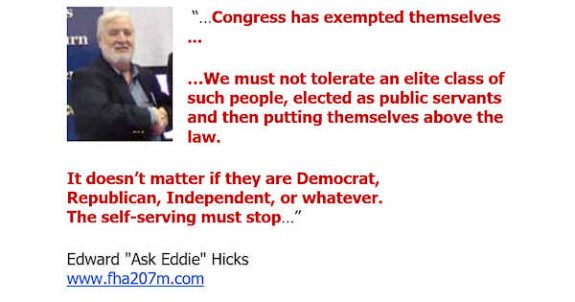
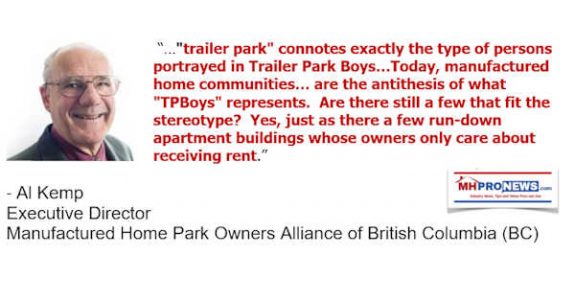
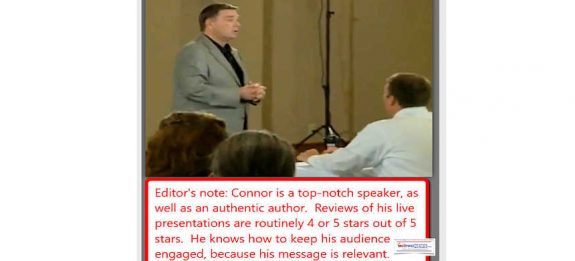
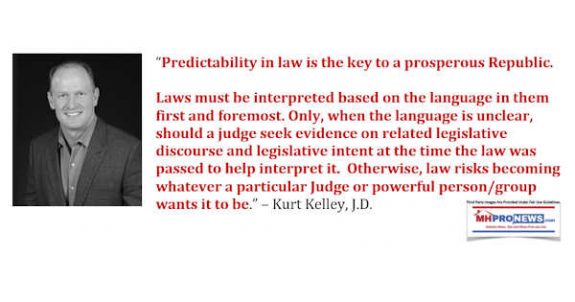
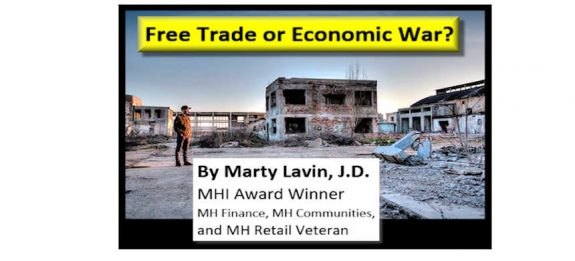
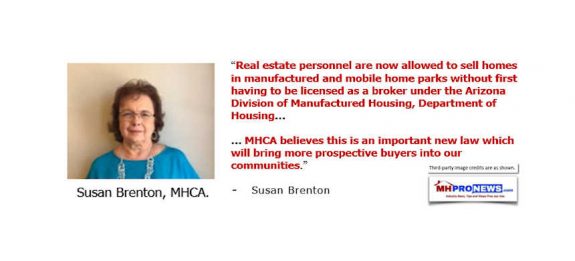
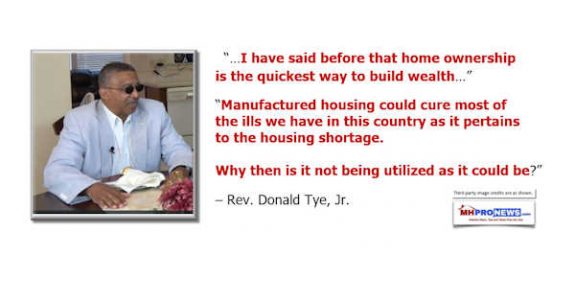
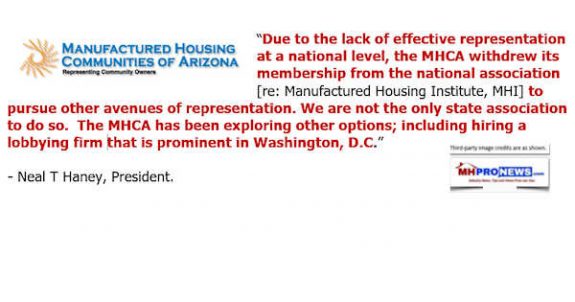

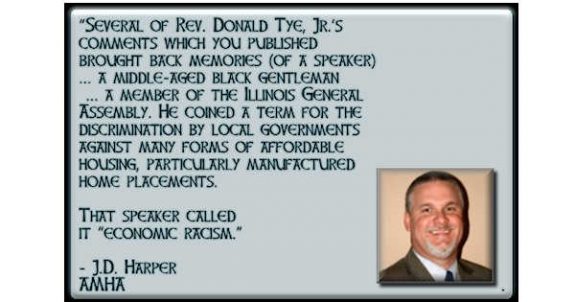
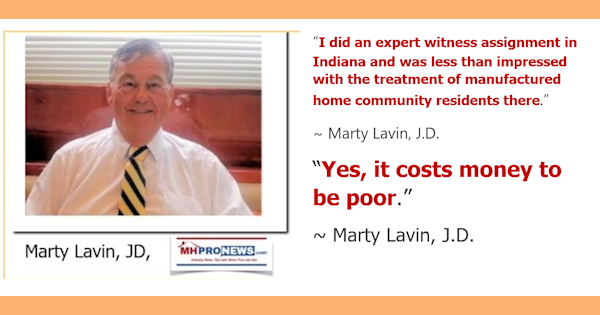
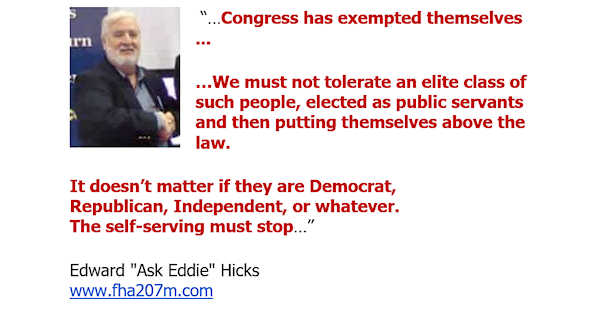
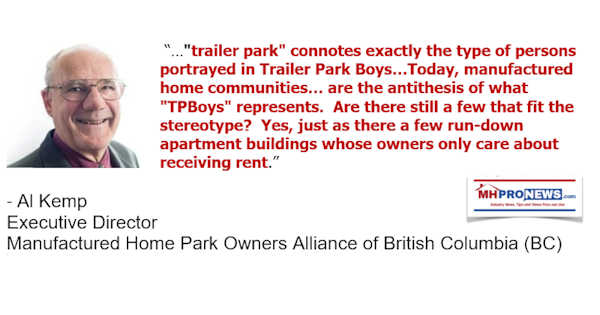
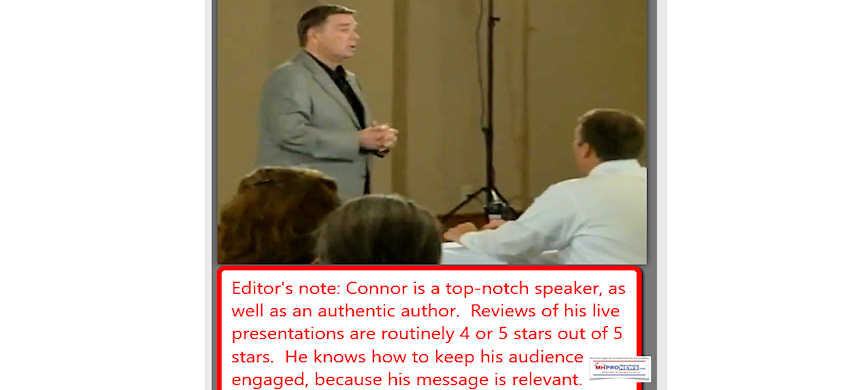
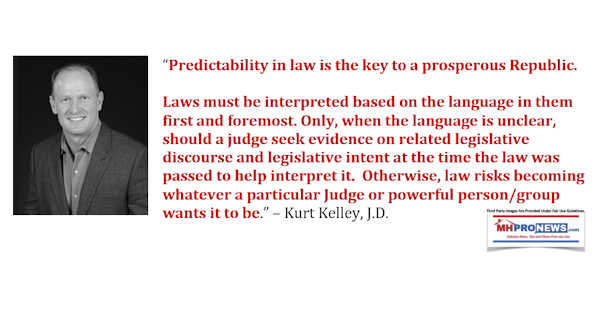
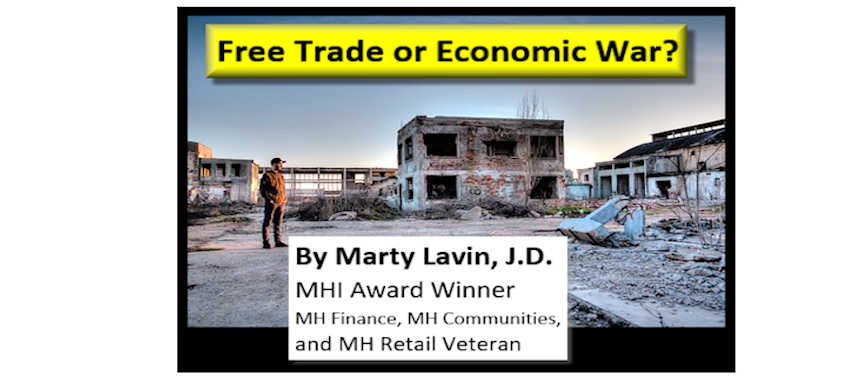
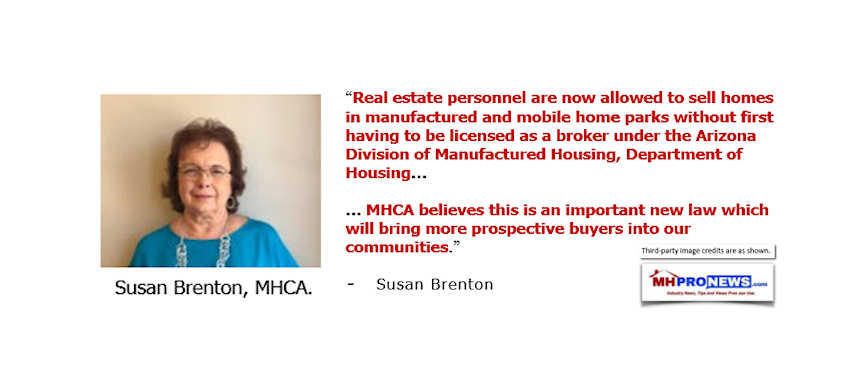
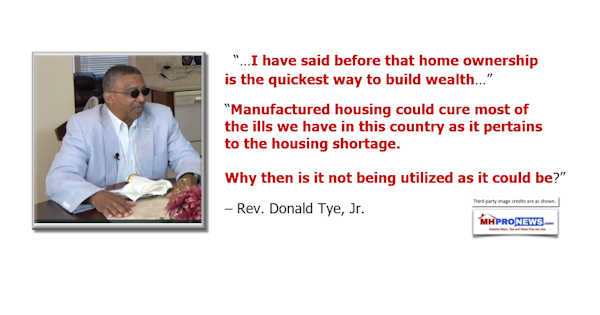
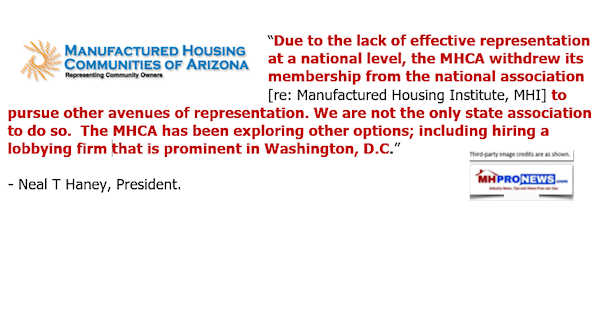

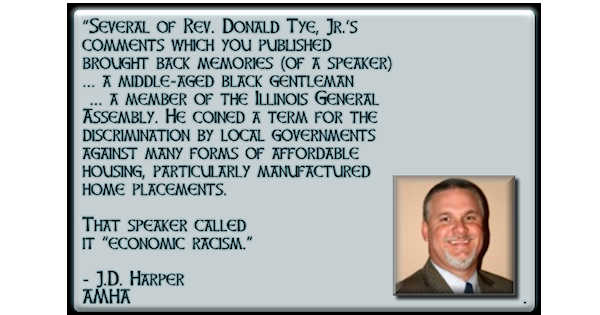
Karl Radde – TMHA, MHI, Southern Comfort Homes – Addressing Bryan City Leaders, Letter on Proposed Manufactured Home Ban
To All Concerned [Bryan City Officials, Others]: As the retail location referenced by Mr. Inderman, I would like to take a moment to address the …